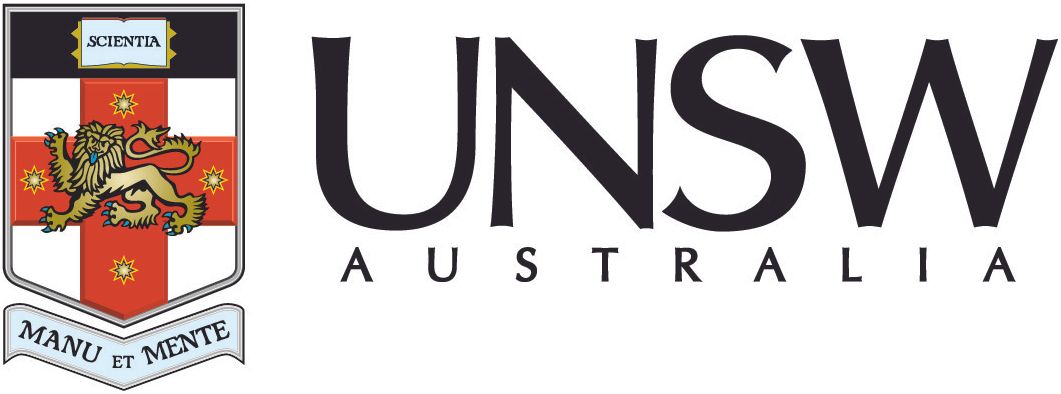National survey finds 97% of people want more action to support Australian biodiversity
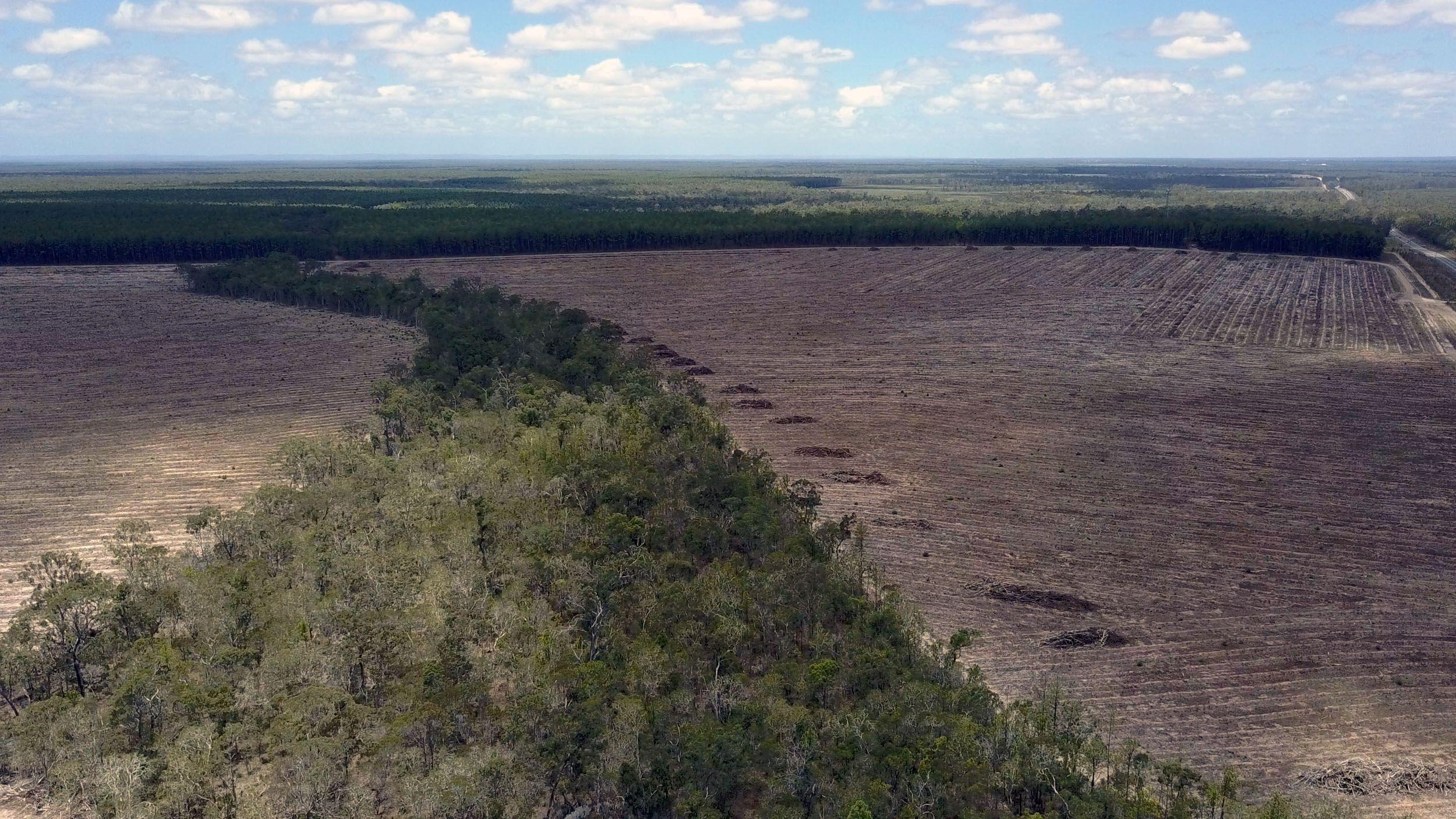
Image: Nico Rakotopar
Media Release
31 August 2023
A community survey by the Biodiversity Council has revealed that 97 out of every 100 people believe that more action is needed for biodiversity in Australia. Well over half of Australians (58%) think that a lot or a great deal more action is needed.
Biodiversity is all the living things in nature. Australia is facing a biodiversity loss crisis – over 100 species have become extinct in Australia over the past 250 years and thousands more have gone from common and widespread to rare.
Biodiversity Council Co-chief Councillor Prof Hugh Possingham from The University of Queensland said that Australia’s biodiversity crisis has received much less public and political attention than the climate crisis, although they are intertwined and biodiversity loss is just as big an existential threat.
“Australian governments have historically spent very little on care for the environment compared to other government spending, while also allowing developments that degrade nature,” Prof Possingham said.

Australia still clears too much land. At least two-thirds of Australians are concerned about land clearing and 8 out of 10 people support tougher fines and stronger laws to stop illegal tree clearing. Image: Nico Rakotopar
“This will harm our economy in the long run as about half of Australia’s GDP relies on natural systems. We rely on nature for pollination, pest control, to clean our air and water, to absorb carbon, to help to mitigate extreme weather and even as the foundations of medicines. Exposure to nature also improves our physical and mental health.
“The World Economic Forum has identified biodiversity loss and ecosystem collapse as one of the fastest deteriorating global risks, and among the top 10 global risks for the next decade. Other related top 10 global risks include failure to mitigate and adapt to climate change, natural disasters and extreme weather, natural resource crisis and large-scale environmental damage.”
Biodiversity Council member Dr Rachel Morgain, the Deputy Director of The University of Melbourne’s Biodiversity Institute, was part of a team led by Prof Liam Smith at Monash University that undertook a national online survey of more than 4000 people. Participants were drawn from a wide range of regions and backgrounds to fairly represent the Australian community.
“Community participation in biodiversity-friendly actions and support for biodiversity-friendly policies are important to tackle the biodiversity crisis,” Dr Morgain said, “So, we wanted to understand how concerned people are about biodiversity issues and what actions they thought should be undertaken.
“We found that the vast majority of people strongly value nature and want more done to conserve it.
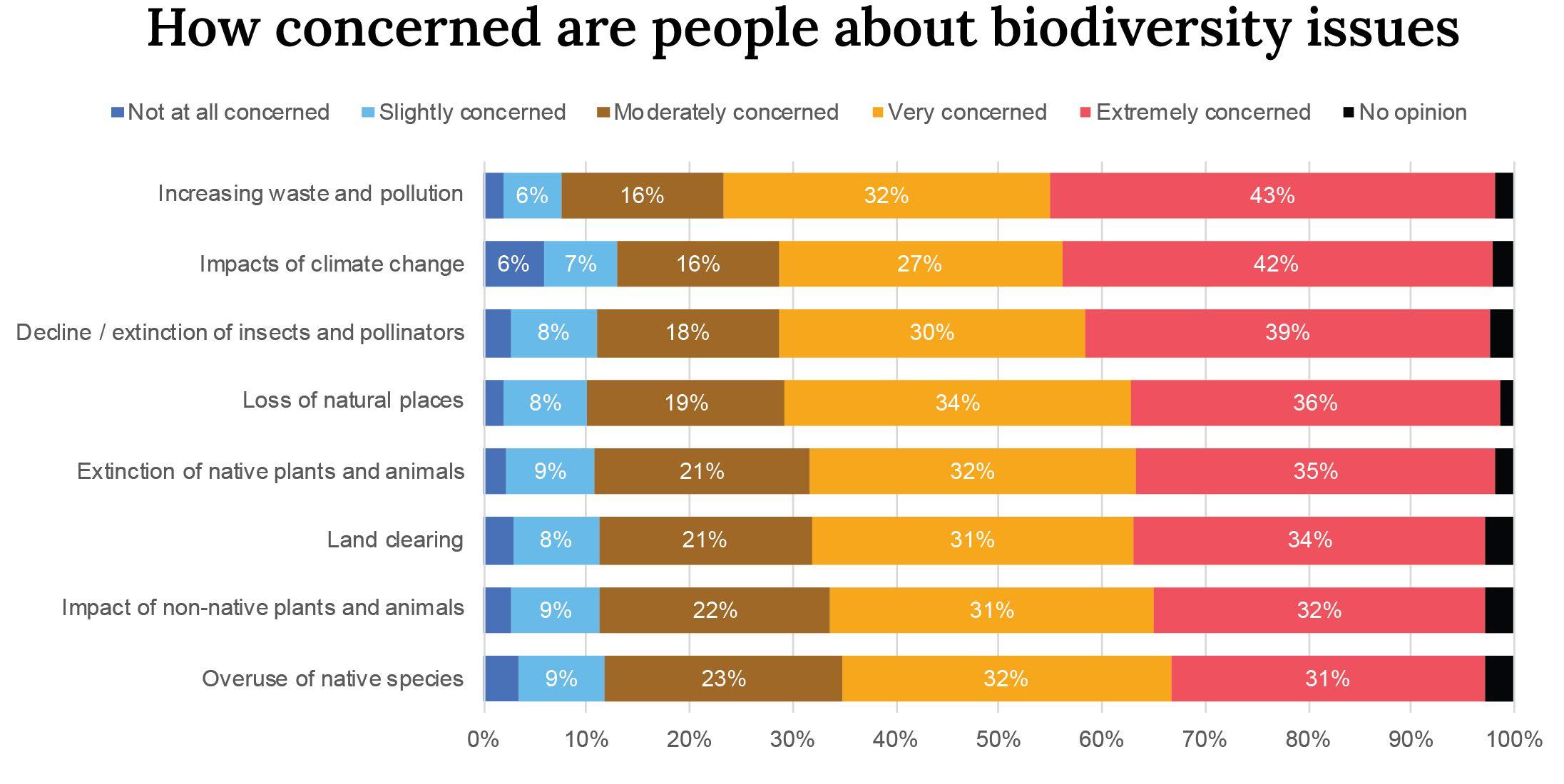
Over 4000 members of the Australian community were surveyed and the vast majority were concerned about nature and believed more needed to be done to protect it. Image: Biodiversity Council
“People think that governments have a big role to play and the majority of respondents said that federal, state and territory and local governments should do more.
“But this is not just a job for governments. Over two-thirds (68%) of people said that every person living in Australia should do more.
“Some of the most common actions that people are taking to help biodiversity are trying to be a sustainable consumer (67%) and managing their pets or gardens for nature (65%).”
The survey found that at least two-thirds of people are very or extremely concerned about:
- increasing levels of waste and pollution
- the impact of climate change on biodiversity
- the loss of pollinator species
- the loss of natural places
- the extinction of native plants and animals, and
- land clearing
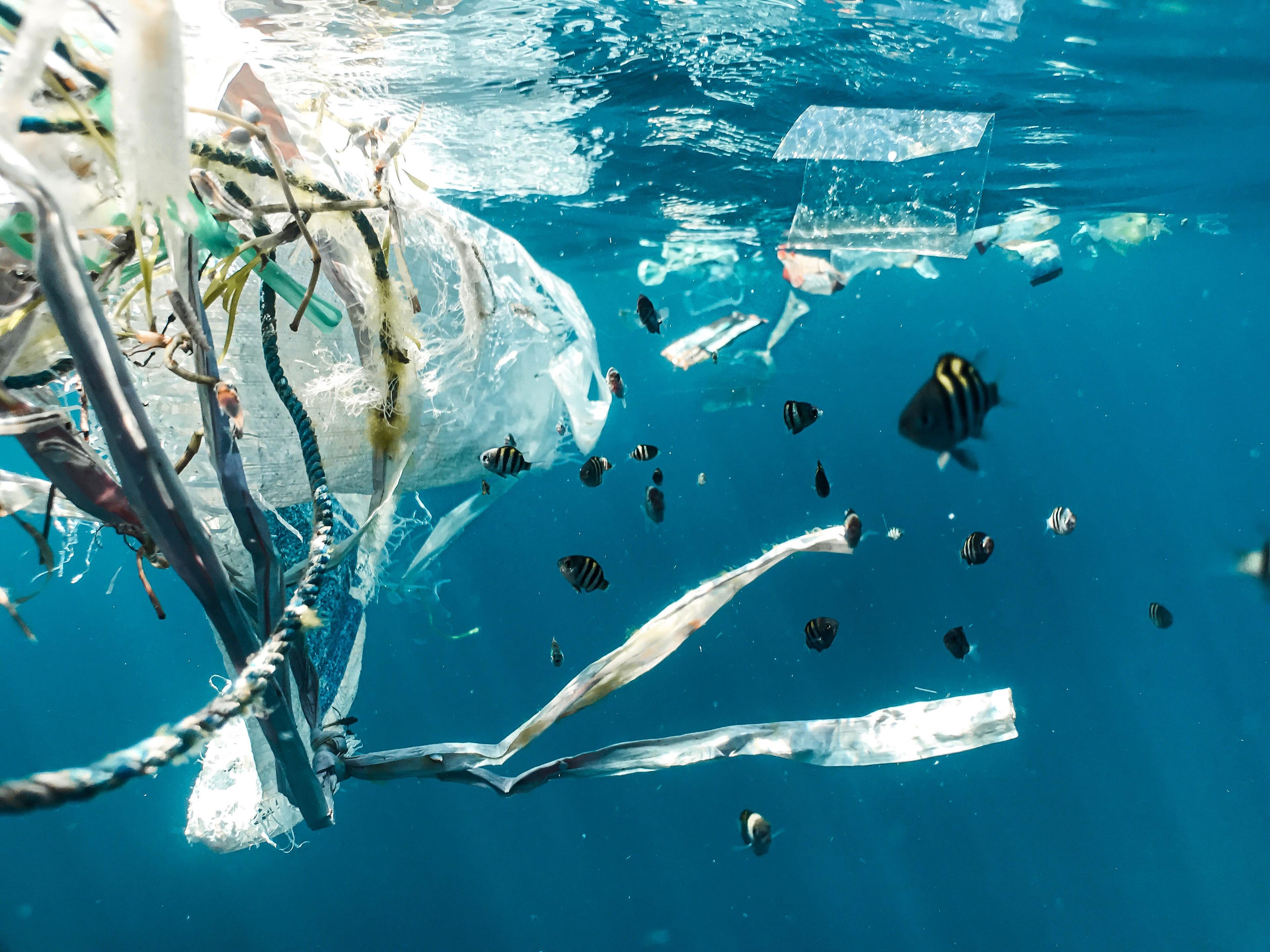
The vast majority of Australians are concerned about increasing levels of waste and pollution. Image: Naja Bertolt Jenson, Ocean Image Bank.
Eight out of ten people (83%) said it was important to them to know nature in Australia is looked after. Around seven in ten people said that nature conservation issues would have an influence (moderate, strong, or very strong) on how they vote in future federal, state and local elections.
Around three-quarters of people (72%) said that more money should be spent on the environment. Only about one in twenty people (6%) said less should be spent.
The most popular things that people want to see more money spent on are protecting habitats and special places during and after bushfires, programs to prevent extinctions, and incentives for organisations to reduce pollution.
Some of the actions to help biodiversity that the majority of people surveyed support include banning logging of native forests, introducing laws to prevent pet cats roaming the streets and requiring businesses to report their impact on nature.
The survey also found that the vast majority of people support policy approaches to help biodiversity. In particular, 8 in 10 people (80+%) support or strongly support:
- Increasing fines for people caught importing / smuggling illegal wildlife or products,
- Restoring nature in cities and towns,
- Restoring water to wetlands and rivers,
- Tougher fines and stronger laws to stop illegal tree clearing and forest / habitat destruction, and
- Increasing fines for high polluters.
And 7 in 10 people (70+%) support or strongly support:
- Banning logging in native forests
- Introducing laws to prevent domestic cats roaming the streets
- Requiring businesses to report their impact on nature
- Establishing new protected areas (such as national parks) at places with high biodiversity
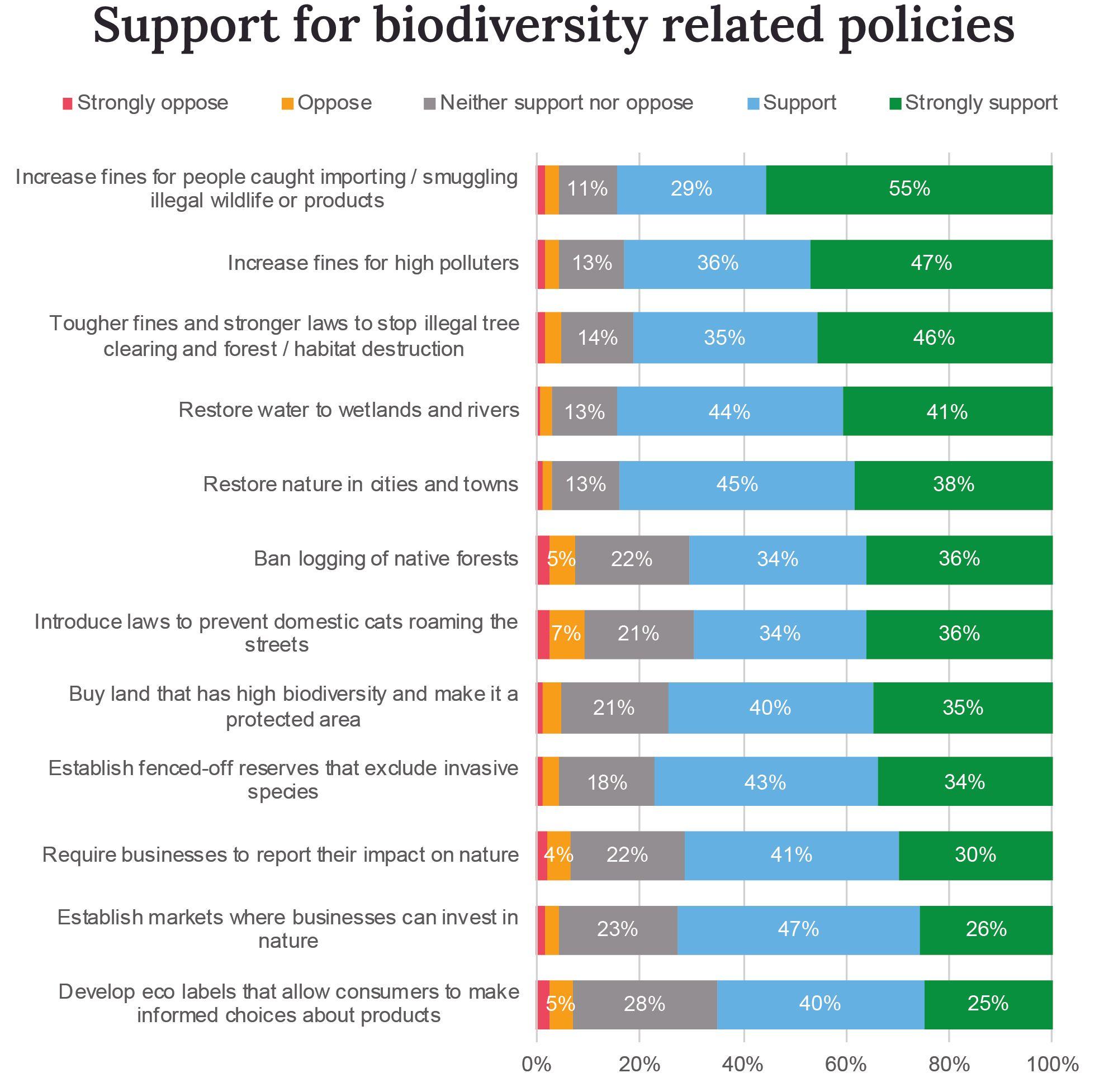
Across 4000 people surveyed broad support was shown for a range of biodiversity related policies. Image: Biodiversity Council.
The Biodiversity Council was founded by 11 Australian universities and brings together leading experts including Indigenous knowledge holders to raise awareness of Australia’s biodiversity crisis and to promote evidence-based solutions.














